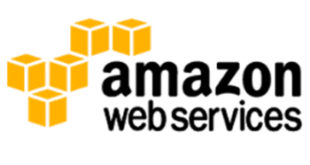The growing availability of cloud solutions and platforms to choose from means that businesses are finding cloud migration increasingly difficult to manage. Alongside this, the running of hybrid solutions and the general transition from traditional on-premise licensing to per user, per month models – and the complexity and risk it brings – is sure to prove a big topic in 2018, judging by the annual UK Oracle User Group (UKOUG) annual conference held in early December.
This was reflected in the appetite of those Oracle members and non-members in attendance, who are increasingly eager to stay on top of existing and future developments. This not only applies to cloud migration and living in the cloud, but also the ever-expanding landscape of cloud vendors and partners, the solutions that they can provide to the end user, and how they communicate with existing solutions.
However, the industry shouldn’t focus solely on cloud migration and moving to new ways of working. Companies should be sweating on-premise hardware and software assets internally, ensuring they maximise their return on the initial investment they made. The cloud is undoubtedly improving efficiency and enhancing operations for businesses that are moving to an OPEX-based model, but the CAPEX approach can still continue to add real value.
This is all underpinned by the General Data Protection Regulation (GDPR) and the impact this will have when enforced in May 2018. Rather than treating the directive with trepidation, it should be viewed as a proactive opportunity for members to review all internal processes. As a result, any recommendations on how to tighten the handling of data and improve general cyber security can be passed on to end-users, providing them with further added value and best practice to act upon.
The number of students that were in attendance at the UKOUG conference is reflective of the surge of new talent coming into the sector, which bodes well for the future. This year, it looked at how STEM Education (Science, Technology, English and Maths) is being enhanced through unparalleled access to data.
The importance of fostering new talent cannot be diminished; these are the leaders who will be moving the industry forward, taking the roles that do not yet exist and providing new and innovative ways of operating, in the coming years. This will inevitably coincide with a significant change in how ‘traditional’ IT jobs differ from new roles, where leaders will need to be increasingly flexible in their approach, not burdened with an historical way of operating. Alongside their day-to-day operations, those in senior management positions will be increasingly looking at how new technologies can open up new revenue streams.
It’s clear that software asset management is still an ongoing issue for organisations, which may still lack the processes and policies to effectively and efficiently manage this. That’s by no means a surprise, as businesses are spending significantly, in order to be increasingly multifaceted in their approach and offerings to customers.
Alongside GDPR, license compliance represents one of the largest unbudgeted financial risks for a company, emphasising the need for businesses to stay on top of things; licence management teams are becoming increasingly innovative in their approach to achieve this. This will allow them to continue to reduce risk and demonstrate a worthwhile return on their investment.
Reflecting on the key themes of 2017, it’s more important than ever for businesses to come together in this way, forming real connections with individuals and other companies, to share best practice and general knowledge, which will prove beneficial for all parties. This collaborative approach will ensure they are able to continue to grow and add real value to their customers, in an ever-challenging marketplace.
I’m sure these topics – and others that are only just being considered – will continue to prove vital to success in 2018. It will certainty make for another exciting and thought-provoking year, leading up to the next UKOUG annual conference in Liverpool in December 2018.
 PCR Tech and IT retail, distribution and vendor news
PCR Tech and IT retail, distribution and vendor news



